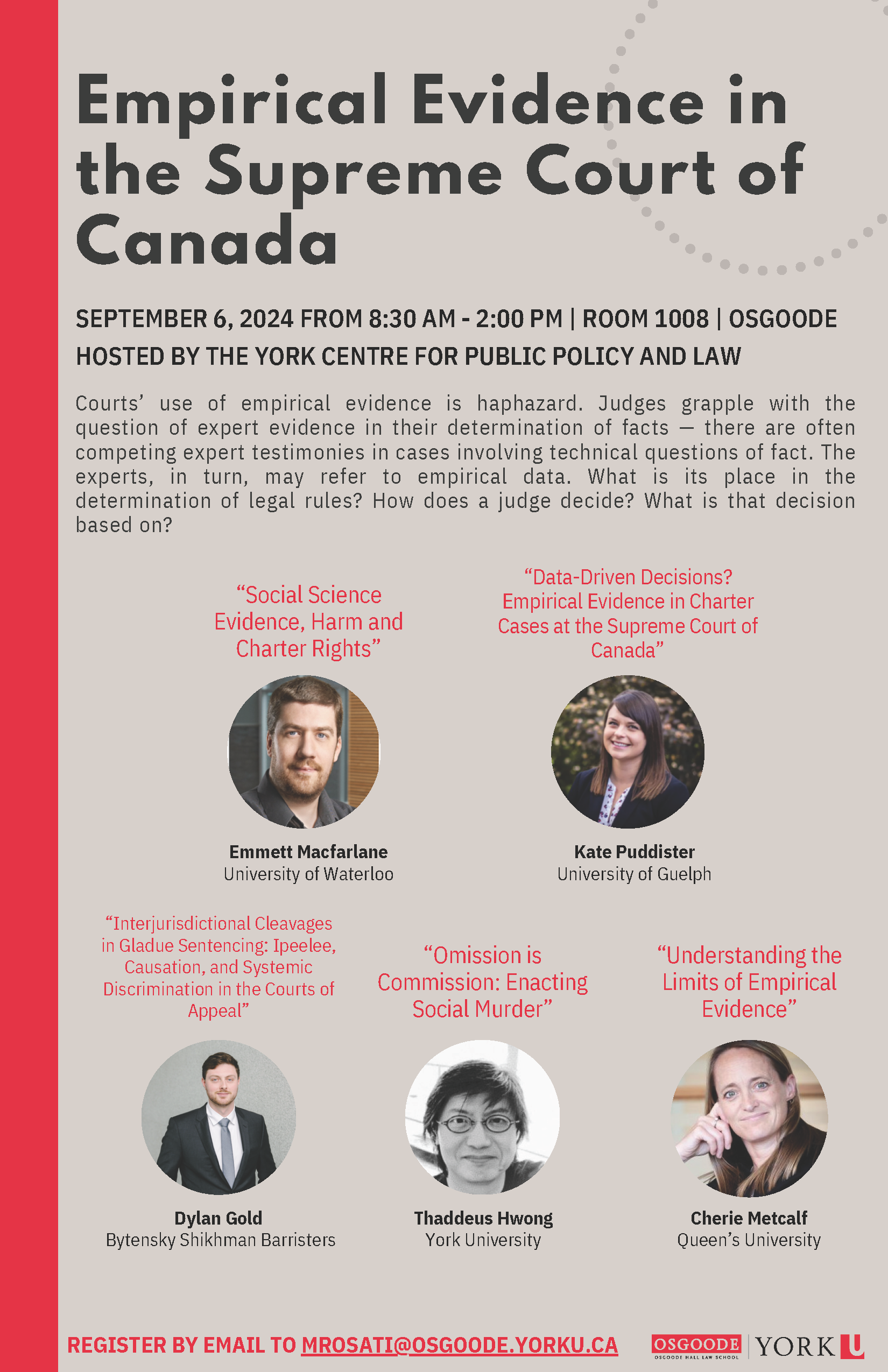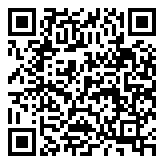
Empirical Evidence in the Supreme Court of Canada
The theme for the workshop is on the use of empirical evidence in courts (particularly the Supreme Court of Canada, although not exclusively). Courts have long grappled with the question of expert evidence in their determination of facts. Scholars have long worried about judges’ and juries’ ability to adequately assess competing expert testimonies in cases involving technical questions of fact. We will look at a related but slightly different question: the place of empirical data in courts’ determination of rules. When an appellate court is faced with a “legal” question, it is typically asked to choose between two, or sometimes more, possible rules. The immediate effect of the court’s choice is which of the parties to the litigation will win its case. But in a legal system that recognizes precedent, such decisions will also change the legal landscape for others. Consequently, one of the factors courts often consider when deciding the case is the effect of the decision on others. Based on what?
Holmes predicted in 1897 that the lawyer of the future would be “the man of statistics and the master of economics.” After all, since judicial decisions, especially from a jurisdiction’s highest court, often have an impact that extends well beyond the parties involved in litigation, it is a good idea for judges to be better informed about possible consequences of their decision. But the arrival of the statisticians and econometricians has not clearly made things better. The problem today seems to be that there are too many statistics, and every side can cite its own. Judges and lawyers often lack the ability to assess the quality and limitations of such studies. As a result, each side cites the studies that supports its preconceptions.
We have lined up a small group of academics from law and political science. Each presenter will be given time to delve into their topic (approximately 25 minutes) and then the entire group will be expected to engage in a further 20 minute conversation related to the presentation. Draft papers and notes are to be circulated to the group about a week in advance of the workshop.
If you would like to attend, please let Mary know prior to August 30 by email at mrosati@osgoode.yorku.ca.
